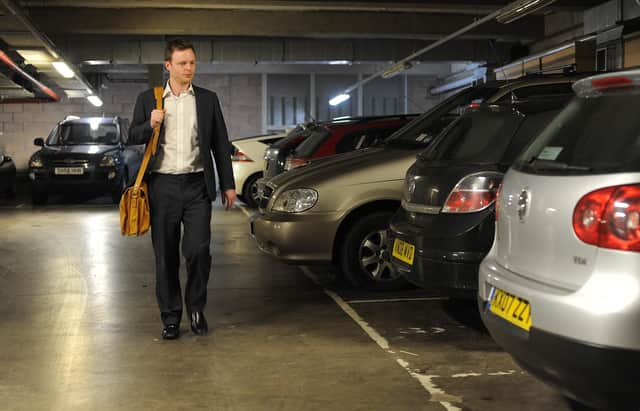We need a city that works for people and not just cars - Jule Bandel


We are very much at the beginning of our journey, but a WPL is essentially a charge on employers who encourage driving to work by providing free parking. How high the levy would be and who would be exempt from it are still to be confirmed, but the consultation might mean that there are some notable exceptions. We already know that exemptions will be allowed for Blue Badge users and NHS workers, but more decisions remain outstanding, and we need the views of the public to help us make them.Congestion and air pollution has become a “new normal” in most areas of our city. We need to build a city that works for people and not just cars. Some will say that cars are needed on every street for businesses to thrive. This is not true. People want to shop, eat and socialise in places where they breathe clean air and which they can access easily by public transport or by walking and cycling.It is people on the lowest incomes who are the least likely to have access to a car and yet are most likely to suffer the negative health effects of air pollution. A levy will have a positive impact for people, especially workers who come from a low-income background, women, disabled people, older adults, and those from ethnic minority groups – all of whom are more likely to depend on public transport.But as well as the health and environmental benefits, one of the most important parts of the levy is the money that will be raised from it and where it will go.
Edinburgh’s City Mobility Plan commits us to reinvest the funding raised from the levy in measures that will enable workers get to work more sustainably – that means wider footways, better public transport, and safe cycle lanes.Reducing the endemic of solo car use could translate into ending the cycle of decline of bus services in Scotland. Services could be made more reliable and more accessible, and routes could be restored for areas of the city that need it most, thus increasing profitability. A win, win, win.In Nottingham a WPL income was used to invest in bus and tram services. Employers reduced the number of spaces available by, on average, 25 per cent to cut their own costs. Fewer parking spots led directly to more incentives for people to walk or cycle.
Advertisement
Hide AdAdvertisement
Hide AdIf it was up to Labour and their blue bedfellows, a consultation would not have even seen the light of day. The climate crisis means we don’t have time to wait, and we certainly shouldn’t be wasting time debating whether people should have cleaner air, healthier lives, better access to services and money in their pockets.So, my challenge to Labour is this – if not the proven policy win that is the workplace parking levy, what do they think we should put in place in the city to meet the challenge of climate change and improve the city for all?
Jule Bandel is councillor for Inverleith and Green party transport spokesperson
Comments
Want to join the conversation? Please or to comment on this article.